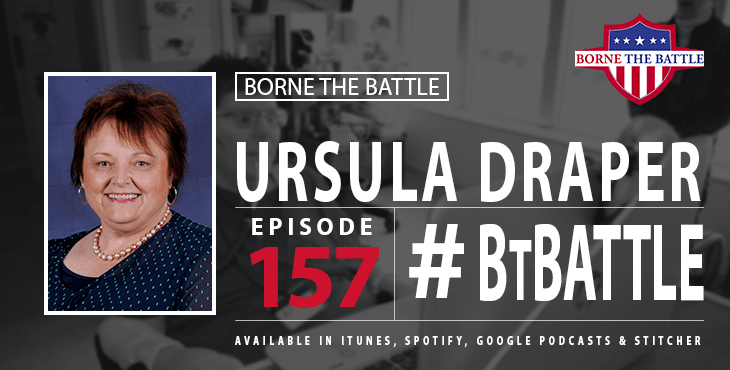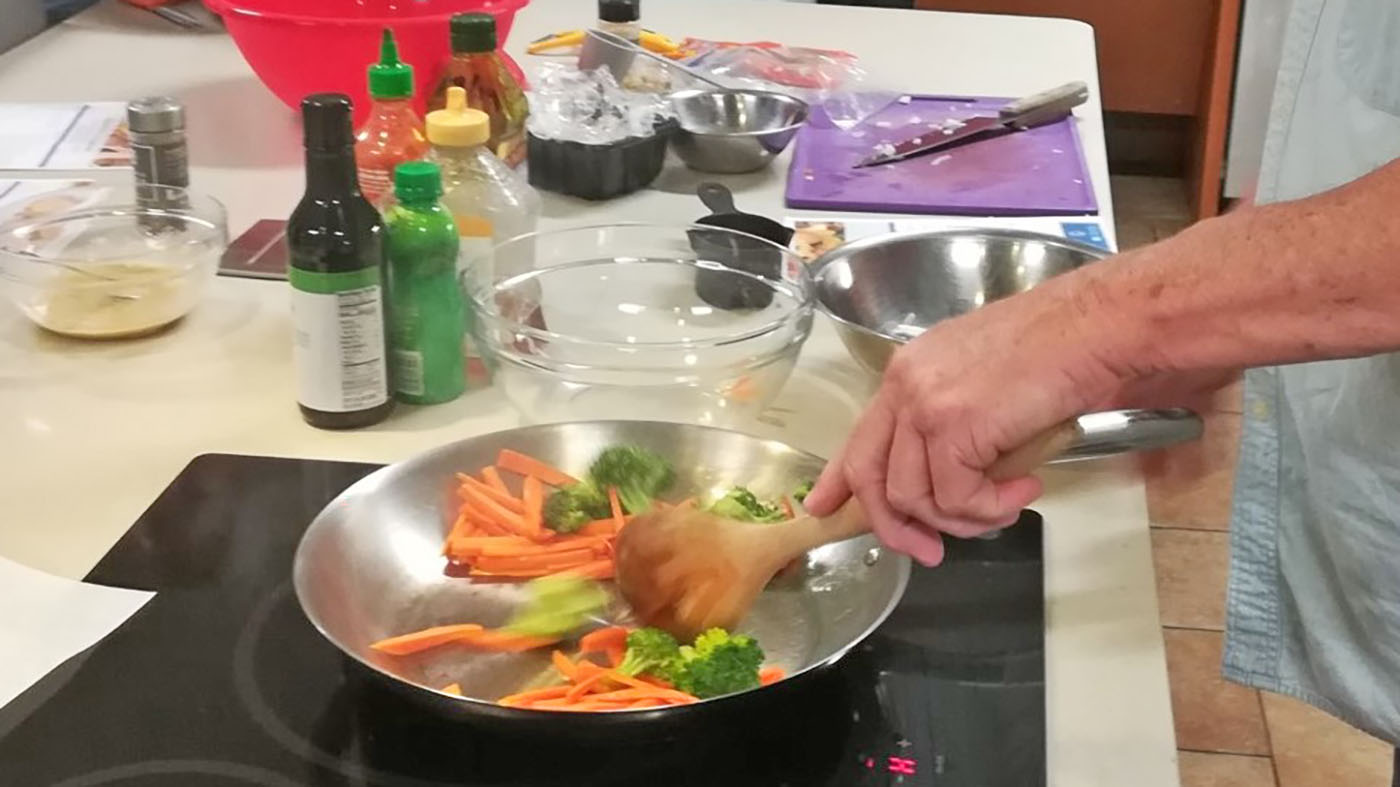This week’s Borne the Battle interview is with Army Veteran Ursula Draper, who developed the VA Assistive Technology Program in 2010.
Since some veterans have multiple traumas, known as polytrauma, VA dedicates resources to help Veterans with very complex issues. In the episode, Draper talks about some of the specific technologies VA has developed to help Veterans.
Draper, an Army Veteran, spent six years working as an ophthalmic technician at Martin Army Hospital at Fort Benning, Georgia. Using her GI Bill, Ursula received her bachelor’s degree in Occupational Therapy from East Carolina University. She then operated her own private practice in Orlando, Florida, for over 20 years, specializing in Sensory Integration and pediatrics. Wanting to give back to the Veterans, she then pursued a career with VA working with spinal cord injuries. In 2009, she began working at the Veterans Health Administration, specializing in spinal cord injury and traumatic brain Injuries.
The Assistive Technology program tries to meet Veteran needs. The program finds adaptive ways for Veterans to access their environment, such as turning on lights or accessing computers. Specific areas of AT intervention include:
- Mobility Assistive Equipment
- Adapted Computer Access
- Electronic Aids to Daily Living/Environmental Control Units
- Augmentative & Alternative Communication
- Electronic Cognitive Devices
- Adapted Automotive Equipment
- Adapted Sports & Recreation Equipment
Additional Links to this week’s Episode:
- https://pva.org/
- https://vaww.blogstest.va.gov/VAntage/40355/shape-the-future-of-rehabilitative-care-for-veterans-with-vas-advanced-platform-technology-apt-center/
- https://www.prosthetics.va.gov/AssistiveTechnology/index.asp
- https://www.prosthetics.va.gov/AssistiveTechnology/Assistive_Technology_Education.asp
- https://www.benefits.va.gov/homeloans/sahat.asp
#BtBattle Veteran of the Week:
- Navy Veteran Donald McCarty
Enjoy.
Topics in this story
More Stories
This month’s Center for Women Veteran Book Corner author is Army & Marine Corps Veteran Uquay E. Baker, who served in Military Police and communications roles from 1995-2006.
VA promotes early nutrition intervention for chronic kidney disease with targeted programs like Heathier Kidneys Through Your Kitchen.
VA Research Advisory Committee on Gulf War Veterans’ Illnesses hosting Veteran Engagement Sessions in Phoenix for 1990-91 Gulf War Veterans.










Living.
For example Donna M., a mother of three who suffers from the effects of a traumatic brain injury, uses smartphone and tablet computer apps to remind her of tasks she needs to accomplish during her busy schedule. For most of us, using smartphones and tablets and computers makes our lives easier, but for people with traumatic brain injury, it makes things possible.
Quick Question:
Assistive technology professionals work with clients of all ages?
I think assistive technology helps a lot in Everyday Living.
For example Donna M., a mother of three who suffers from the effects of a traumatic brain injury, uses smartphone and tablet computer apps to remind her of tasks she needs to accomplish during her busy schedule. For most of us, using smartphones and tablets and computers makes our lives easier, but for people with traumatic brain injury, it makes things possible.
Quick Question:
Assistive technology professionals work with clients of all ages?